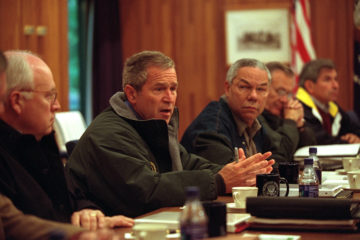Can #BernieOrBust Be Justified? On the Ethics of Voting
The #BernieOrBust slogan was widely adopted in the 2016 Presidential Elections by ardent supporters of Senator Bernie Sanders. These devotees insisted that they would not vote for any candidate (namely Hillary Clinton, the eventual Democratic Party nominee) in the eventual general election showdown with Trump. Four years later, the slogan has resurfaced as a credible threat directed toward what many perceive to be a recalcitrant Democratic Party establishment. In what follows, I do not claim that “#BernieOrBusters” are morally justified (all things considered), but merely offer a possible defence for why some #BernieOrBust advocates are behaving in a rationally justified manner. I grant two premises amenable to most critics of #BernieOrBusters: first, Trump is a highly problematic candidate in his actions and dispositions; second, whilst not …

War and the Ballot Box: What the Iraq War Tells Us About Military Escalation in an Election Year
U.S. presidents have powerful political incentives to think twice before escalating a conflict in the lead-up to an election. Recent events in the Gulf suggest that President Trump is no exception when it comes to avoiding the commitment of “boots on the ground” in an election year. As both commander-in-chief and holder of the highest elected office, presidents must carefully weigh the political consequences of any decision regarding military strategy. Since voters tend to bear the brunt of the human and financial costs of war, decisions to send additional U.S. forces into combat are often fraught with risk of consequent reprisal at the ballot box. In my recent article in International Security, I explore how these electoral pressures affected decision-making during the Iraq War. …

